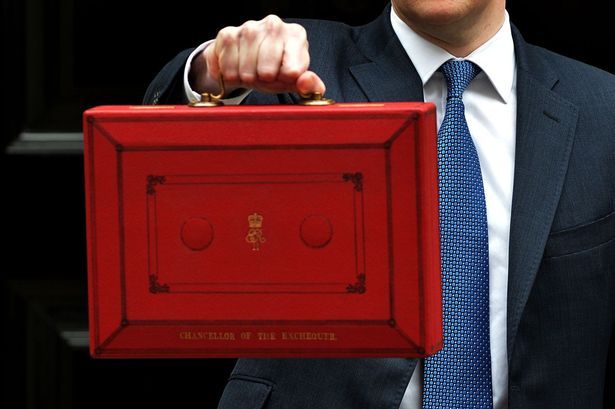The power of micro businesses

Micro businesses are important.
It was interesting reading the thoughts of many politicians recently when they were talking about trickle-down economics, and it got me wondering if they really understood the importance of micro businesses in the UK economy.
These businesses, employing ten people or less, account for 96% of the businesses in the UK economy and are the real drivers of our economy.
Government claim to consult with them, but this is very often done through business organisations who cannot afford to rock the boat for fear of losing their seat at the government table. This results in the real needs and issues of micro businesses not being discussed and, if they are, they are rarely listened to. Their needs and issues are even more rarely acted upon by government.
This is in stark contrast to the lobbying power of big business which has great access to and impact on the decision-making processes of government.
A powerful & positive example
I saw an interesting example of the power of micro business when visiting my local gym recently. One of the fitness coaches had purchased a piece of kit which measured body composition. It was something he would not have been able to afford without the help of a good source of finance.
A small finance company, focussed on small business, had helped him with the purchase and he had his eye on another bit of kit as well.
He was already selling this service to clients, recruiting nine on the night I was there. He’s planning to grow his business and take on more coaches, with this new technology helping him create a clear point of difference with other coaches.
I looked into it a little further and the kit is produced by a small digital engineering company based in the UK. As more coaches buy their products they will also grow and as a result, they would need to buy in more components and labour from within the UK.
On top of this, these small businesses all reported receiving payments quickly and efficiently – something that many big businesses are not doing. Big businesses are making their own payment practices longer and more complex, a culture which makes “trickle-down economics” as a successful concept look doubtful to say the least!
My fitness coach experience is a great story and I bet that even in these gloomy times there are many other stories like this that show the real power of micro businesses and how effective “trickle-UP economics”, can be.
It’s interesting that the starting point was the finance and access to finance that individual sole trader got, from what many call the alternative finance sector. I bet he wouldn’t have got that support from a high street bank.
So, in my opinion if we can get government to listen to and act upon the needs and issues of the UK’s micro businesses and get them to help the finance sector to deliver targeted and effective finance to these businesses (which in many cases will mean getting out of the way) then we really can start to drive the UK economy forward!
Ian Cass
Managing Director
Forum of Private Business

The Forum of Private Business has over 40 years of experience of helping its members with the day to day, regulatory and compliance issues they face. Join the Forum today to get immediate access to business support, financial and legal advice and money saving offers through our recommended partners. Contact our helpline today on 01565 626001.

Small Businesses dealing with increasing costs
In recent weeks it’s been difficult to escape the discussions around small businesses dealing with increasing costs, led by the large increases in the price of fuel and energy for both heating and production. This has led to many businesses having to increase their own prices and these, in turn, get passed on to customers and suppliers. This is having a huge impact on some small businesses, and they are suffering as a result, if you look at just the pub sector which was already under a lot of pressure following the various lockdowns during the Covid-19 pandemic. They have seen the cost of cooking meals and heating the pub go up, beer prices rise, and cellar gas prices increase, this is on top of staff shortages, changing consumer behaviour, high rents, and the fact that many are carrying more debt than prior to the pandemic. That’s just one small business sector out of many that are struggling at the moment.
On the positive side, small business owners are usually a robust bunch, who adapt and change to make their business work but in my opinion, one key thing has changed since I set up the first of my small business venture in 1997 and that’s the margin that many small business owners actually make from doing business. One of the reasons for that I believe is successive government’s lack of understanding of how small business actually works, its importance to the economy and its tendency to treat a small business as a “Big business only smaller” rather than a completely different animal altogether!
When the financial crash happened in 2008 my business and many others had a decent cash reserve or shock absorber if you like and we were able to ride out the storm of reduced business and late payments, but since then I feel small businesses have been squeezed, not only by bigger business customers but by government tinkering, particularly by the treasury, in both the way they tax small businesses and the increased costs they themselves have imposed on businesses. Where small business is impacted more than their larger counterparts. The living wage, auto-enrollment, changes to dividends, VAT, National insurance, IR35 and those small business owners who were excluded from help during the pandemic, as a small business owner juggling multiple roles and trying to keep your business afloat these all had a huge impact in terms of both money and possibly more importantly time.
So I have a sincere hope that the last couple of years will act as a wake-up call to political parties on all sides to really start to talk to small businesses. But more than that, to actually listen and act on what they hear, because most small businesses ask for two things, Make it easier for me to do business and give me a level playing field to operate on and at the moment government seems to want to do neither!
Please take a look at our partner pages within the My Account area, where you will find many of our partners offering services and products at a reduced rate. Find savings for your business anywhere you can.
If you have any concerns about dealing with increased costs or any other business queries, please do contact our helpdesk team to discuss with them. 01565 626001.

Small Businesses are the backbone of Local Communities

Having just been part of the Knutsford Town Awards, presenting prizes and focusing on the role of small businesses in our local community, I’ve seen just how important they were to these communities not just in Knutsford but all over the UK during the pandemic. Small Businesses went the extra mile to help and support local people and the local community responded in turn by supporting them.
The Covid-19 pandemic moved small businesses to the centre of their local communities, local customers supported them and in many cases, they, in turn, helped and supported their local economy. They took innovative approaches and were very creative in what they did to overcome problems, they responded to local needs quickly and in many cases continued to employ people locally and grow the number of people they employed.
They used the period of lockdown to review and improve their business from a fresh lick of paint to complete revamps and overhauls.
Many embraced the digital world, with over 40% of the Forums membership having no website for their products and services this number is now well below 30%. They built social media platforms to support the website and have put digital payment systems in place. So, the Pandemic in the Forum’s opinion became a tipping point for the move into the digital world for many small businesses and there is now a need to train and support these businesses in using digital better.
Some interesting Data –
- £3.80 of every £10 spent locally stays in the local economy, supporting local merchants and their communities.
- 54% of people in the UK say it’s important to shop locally.
- 18% of people in the UK own or work in a local business.
- 68% of consumers say Covid has changed the way they use cash and pay for things into digital and cashless payments.
- 44% of people say they would no longer shop in a place where payment requires physical contact with a device or person.
- 67% of all businesses say their in-store experience has been improved by being able to accept contactless or digital payments.
Ian Cass
Managing Director Forum of Private Business
Sources Visa/Cebr survey Nov 2020 & Visa back to business global study Sept 2021

Meeting with Small Business Minister, Paul Scully MP
On Wednesday 26th January, I had the opportunity to sit down with the Small Business Minister, Paul Scully MP and we went through the following agenda.
Introduction to the Forum of Private Business and Forum of British Pubs
The Forum of Private Business was set up in 1977. The Forum exists to help small businesses with 5-50 employees who have a responsibility to be compliant but do not have their own legal and HR resources. So, we offer practical, proactive support at a reasonable price as a not-for-profit membership organisation. We do not lobby as such but have consulted with government and regulatory bodies since our creation, giving our members a voice and hopefully helping create good governance frameworks, effective regulation, and a thriving small business economy.
We set up the Forum of British Pubs in the middle of the pandemic in 2020, as we saw many pub owners struggling to deal with their pub company owners. We deal with each member on a case-by-case basis, helping them with dilapidation charges, rent negotiations, contracts, MRO submissions. We offer practical help and advice if they are in trouble as well as trying to keep them out of trouble in the first place. We have also more recently been working with local regional planning officers to help them deal with Change of Use applications, where viable pubs are claimed to be unviable!
General State of Play SME’s
Finance – Dept, Late Payment
- Many of our members report being in debt or further in debt because of the impact of the pandemic. Some have taken the view that if they are taking on debt, having been previously risk-averse, they are now making sure the debt covers their needs and possible growth. For example, Digital opportunities – The cost is often more than the hardware, training, and development, so many small businesses are not only investing in the hardware and software but in the training and recruitment of staff to use these tools effectively and boost productivity.
- The Banks were poor in terms of issuing CBILs, mainly because they don’t know their small business customers, so had to go through extensive tests and information gathering before issuing them, this included customers of over 30 years in some cases. Bounce Back Loans then came in with little risk to themselves and they handed them out like smarties. The lesson I think is for the treasury to realise that the big banks are no longer the default choice for many SME’s and this in part has been driven by the Banks own behaviour towards SME customers.
- Use of alternative funders, rather than the big banks, see the comments above, there is a need for the treasury to better understand how SME’s access and use funding, including the start-up banks, Metro Bank were very successful in recruiting SMEs alongside Starling and tide. Many also look at holding on to capital and leasing rather than buying, vehicles and office equipment being a good example.
- Late payment seems to be on the increase, it’s a cultural issue and needs to be treated as such, use of the Small Business Commissioner if she has the resources to do the job.
Independent retailers
- Restore the High Street, smaller units are needed, places to learn the trade and develop your products and services, the demand Is there, artisan markets, it’s the leap from there to the high street that’s a big issue.
- Landlords, the good and the bad! Some Local landlords are adapting and responding to local needs, price and size. Larger more distant landlords are not adapting and are trying to maintain high rents, supported by RICS acting as agents, it could be argued RICS are conflicted.
Hospitality
- Good Capital reserves, quoted by the treasury, in the Grant announcement, if this came from listed businesses it could be argued it supports what we were saying about grants going into pubs then straight into the accounts of some of the pub companies. some big hospitality groups may have done well out of the pandemic.
- Forum of British Pubs Latest Survey, this was shared with you and the final document will be emailed once it is finalised, summarised, and fit for release.
- RICS Variances, it is difficult to understand how two surveyors from the same professional body can come up with wildly differing claims if they are looking at the same business and operating to the same set of professional standards, but variances of up to 100% are happening and RICS seem to accept this. Surely a variance figure could be given as a guideline, say 15% and anything over that needs investigating.
- The latest Consultation on the Pubs Code addressed the low hanging fruit, not the core issues.
- The PCA
- The BII expert panel, we strongly object to the PCA, in its latest update and the Government response to pubs code consultation highlighting the BII and its expert panel. The BII is a charity that relies on regulated pub company’s to fund its training courses and you have to join the BII to access its panel. So the PCA and Government advertising this BII service gives them an unfair commercial advantage. There are also questions, do the BII make money from their panel members in terms of commissions? And how do you become appointed to the panel?
- The Latest PCA Survey, where does the data that IPSOS Mori uses come from and why doesn’t the PCA publicise where it comes from? Because at the moment the trade feels the data comes from the pub co.’s who can manipulate those lists.
Final Questions, can you (Small Business Minister) help?
- Better engagement with us, particularly on the next Pubs Code review. We agreed to meet on a 6 monthly basis which is much appreciated and any help the Small Business Minister can give in promoting better relations between ourselves and the PCA would be appreciated.
- Pub companies provide an investment statement, annually, quantify the SCORFA. At the moment the publican can see the additional costs associated with being in a tied agreement, so rent, beer, wine and spirits. They are told they get benefits via the SCORFA, but this is currently not quantified. So why can’t the regulated pub company provide a simple annual statement which lists the investment made in the pub, structural, marketing etc with a value set against each? This statement could also list any outstanding works to be carried out by the tenant, so there are no surprises in dilapidation charges which may be applied. The PCA asked the BBPA to look at a solution to the dilapidations issue, something which we haven’t seen the result of, but this could be part of the solution to that!
- RICS as part of the wider rent issue, if the government is able to help prevent the wild variances and inflated rents that currently impact many UK towns and small businesses it would be most appreciated.

A summary of the Spring Budget 2021
Your Personal finances
The personal allowance and income tax thresholds for basic and higher-rate taxpayers will rise in April and then be frozen until 2026 – increasing their tax as earnings rise. Income tax rates and thresholds are set in a different way in Scotland and Wales. The inheritance tax nil rate band, the capital gains and pension lifetime allowance remain unchanged until April 2026. Anyone with a total pension value above £1,073,100 may face additional charges. ISA limits remain unchanged.
- Alcohol
Duty on spirits, wine, beer, and cider remains frozen for the 2021/22 financial year, which benefits brewers and distillers but not individual pubs, bars, and restaurants.
- Fuel
The chancellor has not raised duty on petrol and diesel: which has been frozen for more than a decade.
- NHS
An extra £1.65bn is to be injected into the vaccination programme in England, while the devolved administrations are receiving additional funding. This should mean the great progress we have made continues.
COVID-19 Pandemic
The Coronavirus Job Retention Scheme will be extended beyond its 30th April cut-off until the end of September 2021. The government will pay 80% of wages for furloughed staff until the restrictions are due to be lifted in June then: businesses will be asked to pay a further 10% of wages in July, and then 20% in August and September. Support for self-employed workers will continue until September, expanding to cover those who started working for themselves in 2019/20. But still not including the roughly 2 million small business directors who have been excluded since the start of the pandemic in 2020.
Further business support
The 5% VAT rate for the UK hospitality sector will remain until the end of September, followed by 12.5% until next April. Restart grants will be offered to businesses, such as non-essential retailers in England, grants for the hospitality sector will be welcome but need to reach the trade quickly, there were delays in the previous grants being distributed. The 0% rate on business rates will extend until the end of June and for the rest of 2021/22, rates will be discounted by two thirds, which will be particularly welcomed by the hospitality sector and tenanted pubs in particular. Further announcements are expected from Wales, Scotland, and Northern Ireland.
Public finances
The chancellor stressed that the very high level of UK government borrowing throughout the pandemic and this needs to be thought about and addressed in the future as a small rise in interest rates could have a £20 billion impact, so despite borrowing costs being relatively low at the moment, there will be future increases in taxes. So far, a total of £407bn has been set aside to deal with the pandemic, and borrowing is set to hit its highest level since the Second World War, debts which were not paid off until December 2006, so it is a long-term issue.
Economic forecasts
The economy is expected to return to its pre-pandemic size by the middle of 2022. But it will be 3% smaller than would otherwise have been the case by 2025, although the chancellor said the actions that the government has taken since last March have helped. GDP is expected to grow by 4% in 2021 and then 7.3% next year, while official forecasts suggest unemployment may peak at 6.5% in 2022.
Housing market
The current stamp duty 0% rate on property purchases worth up to £500,000 is being extended beyond 31 March: this will now apply until 30 June. From July until the end of September, there will be a 0% rate on the first £250,000 and, from October, the 0% band will revert to £125,000. The government has announced a new mortgage guarantee scheme for borrowers with small deposits (5%).
Business taxes
The rate of corporation tax on business profits will rise from its current 19% to 25% in 2023, the chancellor said that as part of the government’s efforts to pay down the national debt. There will be an exemption from this higher rate for most smaller businesses who make up our membership, however, with the 19% rate applying to annual profits up to £50,000. An incrementally higher rate will be applied to profits between £50,000 and £250,000. The Forum still feel this misses those large multinational businesses who pay hardly any tax in the UK despite doing a lot of their business here.
Business investment
For the next two years, businesses will be allowed to offset 130% of their investment spending against their tax bills. With investment levels having slumped during the pandemic, the chancellor hopes this policy will help drive improvements in growth and productivity across the UK.
Stock market reforms
The Chancellor announced plans to introduce reforms to the stock market in London in an attempt to bring more fast-growing businesses into the UK. The plans will make it easier for SPACs (special purpose acquisition companies) to join the London stock market, and the reforms are seen as a way for the City to protect its status as a leading financial centre, post-Brexit.
Scotland, Wales, and Northern Ireland
The chancellor announced additional funding for the devolved administrations under the Barnett formula, with an additional £1.2bn to Scotland, £740m in Wales and £410m in Northern Ireland. The chancellor also pointed out that most of the measures he put forward would apply across the whole of the UK.


